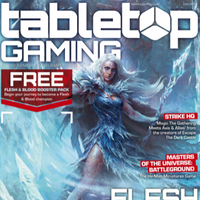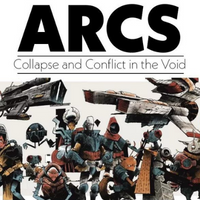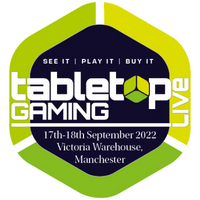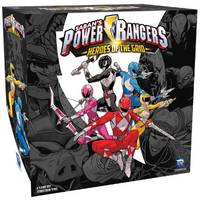28 June 2022
|
Blood, swear, & cheers
Words by Christopher John Eggett
Flesh & Blood is a relative newcomer to the trading card game scene, with its launch in 2019 and wider release the following year, it’s also been ensnared in Covid-19 restrictions on social gatherings. With many of those restrictions now having been lifted for a number of months at the time of writing, we’re set to return to a world of in-person competitions. Many local game stores are open now with no restrictions and we’re finally seeing the return of competitive card games to the forefront of the hobby.
We talked to Matt Roger, the champion of the New Zealand Nationals event and a ‘Calling’ event (which often nets a grand prize of $20,000) – which is the closest we can get to a World Champion. The World Championships were intended to go ahead in 2021, but with most of the world – excluding New Zealand – were still in the throes of various restrictions. There will be a World Championship event, but the new dates are yet to be revealed.
“Winning the National Championships was the big breakthrough of 15 years work for me,” says Rogers, “I’ve come very close in Magic, second in one of the national championships and top 16 in Pro Tours, and got very close at Worlds – but I’ve never had a real trophy behind me. Until now.”
And now is the right time to get involved with the scene.

DECKED OUT
We ask Rogers to set the scene for us – what does being at a National Championship look and feel like? While we can catch a glimpse of tournaments online, there’s nothing quite like being in the room.
Rogers describes a huge exhibition hall filled with a hundred or so people who have qualified somehow, have won their tournaments to get here, “they’re the best that the country has to offer,” says Rogers, “you arrive and there’s table set out – with two chairs for two players, and judges walking around in neon yellow shirts on.”
The tournament feeling ramps from there with loudspeakers announcing and tournament organisers wandering the floor.
“And then there’s a massive, massive, clock on the wall,” says Rogers, “so everyone can see the round time. Then everyone goes up, sits opposite their opponent and gets ready to battle.”
The clock is the key to this. Everyone there is running up against time, in whatever form it’s currently ticking on – this might be their moment, or their turn might be coming to a close on the timer, or they’ve made a choice too rashly. There’s an immutable element of time becoming precious and pressured – a resource and a force. Use it right, and make the right choices, and you might be able to make it into the next round, with others who have also spent their time wisely.
From the initial 12 or 14 rounds (depending on the format), the top players after each of those matches move on to the top eight playoff.
“Each of those games takes around 45 minutes each,” says Rogers, “those in the top eight battle in single round elimination to crown a champion. Those games are very intense.”
“You’re sitting across from somebody that absolutely deserves to be there. Somebody who has battled through those 12 or 14 rounds as well,” says Rogers. And then there’s the crowd, “you might be surrounded by 20 or 30 spectators that are intently watching on – and you’ve usually got a judge sat at the table as well, and you’ve got to make sure you do everything right.”
That sense that you’re working towards something great – but is entirely out of your reach at the very moment you sit down at the table is one of stranded equilibrium. Players at this level often become prone to long turns of deep analysis, this is partly because there’s simply no ‘can I take that back?’ on a bad move on the professional circuit, but also the complexities of the game itself become evident.
“The thing with Flesh & Blood is that there’s just so many decisions – as I said, I played Magic for many years, and in any given turn there’d be a few options,” says Rogers, “but in Flesh & Blood there’s ten times as many options. There’s so many things to consider and it’s hard to figure out the perfect line.”
“There might be times during the game where you make plays that aren’t 100% correct within the time constraints given – you can’t just sit there for minutes,” adds Rogers.
You might imagine that playing at this level is a little bit like the raucous atmosphere of a sports match. Cheering and shouting as good or bad plays are made – but the reality is the crowd is encouraged to be quiet during the match itself. This is intended to stop spectators from giving away what’s in the players hands, or whether they’ve just drawn well. But there must still be a reaction, even if no one is saying anything.
“You can feel it,” laughs Rogers, “you know when you make a blunder or set up some impressive manoeuvre – you can feel the, I guess, ‘vibrations’ in the room or something.”

KRAKOW CALLING
The Calling tournaments are the open format tournaments that offer space for up to 300 competitors. At the time of writing Krakow in Poland is hosting the first European outing of the series. The winner will leave with a $20,000 prize and professional tournament invitations.
Rogers won a similar event in New Zealand. We asked how he managed to win out against his competitors. Like much about card games, it started with the draft.
“Going in to the top eight there’s a draft – everybody opens boosters and you play a strategic round, around the table,” explains Rogers. This draft means players open sealed packs, and player pick a deck out of the things that are going around, kind of like ‘pick and pass’ as we’re familiar with elsewhere.
“There were four heroes in this set, and usually you’d expect each hero would be represented twice on average,” continues Rogers, “that goes up and down here and there, depending on how the draft goes. But I realised about halfway through the draft that I was the only one drafting this particular hero – Chane.”
“It was a specific shadow hero. I had open pickings of all of the best cards to construct the exact deck I wanted. So I got to the end of the draft thinking, ‘this is amazing, I’ve got a chance of winning this event,” laughs Rogers, “I read the draft table and read where people were at and managed to put myself in a position where I was the only person looking for a specific hero, and that worked out.”
Outside of The Calling series, most professional games are constructed – like the Nationals. Most games you want to play as competitive card player are going to be constructed as that’s a big part of the draw of the game – bringing your perfectly crafted deck in the hopes of out-manoeuvring your opponents and the meta.
How does the national champion construct their decks then?
“I teamed up with a friend of mine, Nick Butcher, an Australian player. We worked on the deck together over many, many months. We developed the deck, made constant changes,” explains Rogers, “we just developed and tried all these different strategies and came up with all these different answers for different matchups in the months leading up to the Nationals.”
“We definitely put a lot of hours into the deck – if one of us had a shower thought we’d always put it into practice. We spent hours testing those ideas,” says Rogers.
Deck construction is particularly important in Flesh & Blood as you start at ‘full power’ in the game – there’s no point in the game that you’ve got as many options as you do right at the start.
“The game starts you at full strength,” says Rogers, “you’d representing your hero, you’ve got all your equipment and armour, full life and all these resources at your disposal. Throughout the game you’re being worn down, you’re getting weaker and weaker. You have less of a life resource, less equipment or things to block with. Because the way it works is that you use your weaker cards as resources, they go to the bottom of your deck and later in the game they become everything to you. Generally you’re having to work our your strategy in the late game with weaker cards.”
The other factor is, of course, the ‘meta’. For now, Flesh & Blood has a strong and aggressive ‘meta’ – decks that focus on fast and attacking play.
“There are lots of decks that try to be quite aggressive and finish the game within the first cycle, before the players get through their deck once,” says Rogers, “honing in on strong, powerful, red cards.”
“There are more defensive decks,” continues Rogers, “these play the stronger blue resource cards that have a bit of inevitability about them. This means that in the late game you’re still able to do things. They control the pace of the game, run the other deck out of their more powerful cards, and fatigue them down.”
Of course, like every trading card game, there’s the possibility of ‘combo’ decks too, although it’s not as strong in the current meta as it can be in other games.
“There’s some semi-combo decks, where you try and get off a couple of big turns, throughout the game and it revolves it’s entire game plan around those turns,” explains Rogers. Other decks that aim for something close to a classic ‘Exodia!’ one-turn-kill decks.
“There’s this one deck at the moment – a Viserai deck,” says Rogers, talking about the arcane ‘death knight’ style hero from the Arcane Rising set, “this deck builds up all these Runechants throughout the game. Runechants are these things where you pop them off by attacking – and they deal one damage to the opponent each. So this deck will try and build up say 30 of these things and attempt do a massive one turn kill by throwing these at the opponent with some other attacks.”
Rogers tells us this accounts for five or ten percent of the meta game, “there haven’t been many decks like this so far in the game,” he adds.
“I think it’s a space that the designers are going to continue exploring. I think that the way the game is designed, with such a focus on the cards being close in power and there being a central grind and fatigue battle over many turns, it’s still going to be a lot less prevalent than in other games,” he says, “I can’t imagine more than 10% of people doing one turn kill stuff.”
And this kind of consistency of deck and the way the player choices are reduced as the game goes on is what keeps the scene alive. Already it’s outlived many trading cards games that launch in much better circumstances, and seems set to make bigger waves as the game continues to grow. The competitive scene will be something that drives that growth, especially with so many large cash prizes on offer to draw in professional players from other games that might – now – seems a little outdated.
WHAT’S NEXT?
Flesh & Blood is seeing the new Uprising set released, including Iyslander the Ice Wizard, on June 24th – and new events are rolling out thick and fast right now. The Uprising World Premiere kicks off June 10-12th across three continents, and UK events are popping up in your friendly local game stores right now. On top of this the Pro Tour France kicks off in August. Keep your eyes out for your next chance to get into the Flesh & Blood scene.

TIME FOR AN UPRISING
While we’re focusing on what competitive play means for Flesh & Blood, there’s an uprising afoot. We spoke to the game’s designer and founder of Legend Story Studios, James White, about the new set, called Uprising.
“Uprising is a standalone booster set that plunges fans into a brutal civil war sweeping across the harsh and unforgiving land of Volcor,” says White, plunging us into the lore of the world, “Dromai, an Imperial Illusionist able to conjure the legendary dragons of Volcor out of aether and ash faces off against Fai, a hot-headed Ninja who spearheads the Uprising against the draconian oppression of the Imperials, while Iyslander journeys from her Icy homestead in search of answers to painful questions seared deep within her mind.”
This set has been designed with competitive play in mind, “Uprising is designed for exceptional booster draft, sealed deck, and constructed play, and includes incredible ‘Marvels’ that will leave players and collectors in awe.”
There’s around 220 new cards in the set – spread across the Ninja, Wizard and Illusionist classes and a bunch of non-class cards too. More importantly, the setting opens us up for some classic fantasy fun, “it’s the first time we have immersed fans into the region of Volcor, and its native Draconic talent,” says White.
“The headliner of Uprising is Dragons, Dragons, DRAGONS!” enthuses White, when asked about what kind of decks he’s looking forward to the most, “myself, like millions of gamers and lovers of fantasy around the world, love seeing Dragons in all their majestically powerful beauty setting the arena ablaze. I expect and look forward to seeing Dromai and her Dragons doing just that on gaming tables across the world.”
And for competitive and professional players like Matt Rogers there’s plenty to get their teeth into – particularly in constructing decks to “face off against the new threats of Dragons and Phoenix, and then you Iyslander who is looking to put the Draconic fireworks on ice.”
Today we’re revealing Iyslander, “Iyslander is an Ice Wizard who is very good at slowing the pace of the game. She is the first hero in Flesh & Blood that is designed to respond to the actions and attacks of the opponent with her own disruptive cards and effects. It adds a different dynamic to the ebb and flow of game play, as Iyslander is very good at dictating the tempo of the game if the opponent doesn’t play their cards right.”
Looking for more?

This review came from Tabletop Gaming Magazine, which is home to all of the latest and greatest tabletop goodness. Whether you're a board gamer, card gamer, wargamer, RPG player or all of the above, find your copy here.
Get your magazine hereRead More...

If you want to read more about one of the most hotly anticipated games of the year, check out our interview with Cole Wehrle on ARCS! A new game from the designer of Root and Oath, and we've got all you need to know.
To infinity and beyond
Join us in person

We can't wait for Tabletop Gaming Live 2022! An epic weekend in Manchester full of board games, card games, roleplaying games, wargames and more, with amazing exhibitors, great games, and an opportunity to game together in person.
See you there!Treat Yourself!

Have you visited our game store? We have everything from mystery boxes, to games and accessories – including the above Power Rangers: Heroes of the Grid, with a great discount! Head over to find your new favourite game.
Visit the Game Store
Sometimes we may include links to online retailers, from which we might receive a commission if you make a purchase. Affiliate links do not influence editorial coverage and will only be used when covering relevant products







